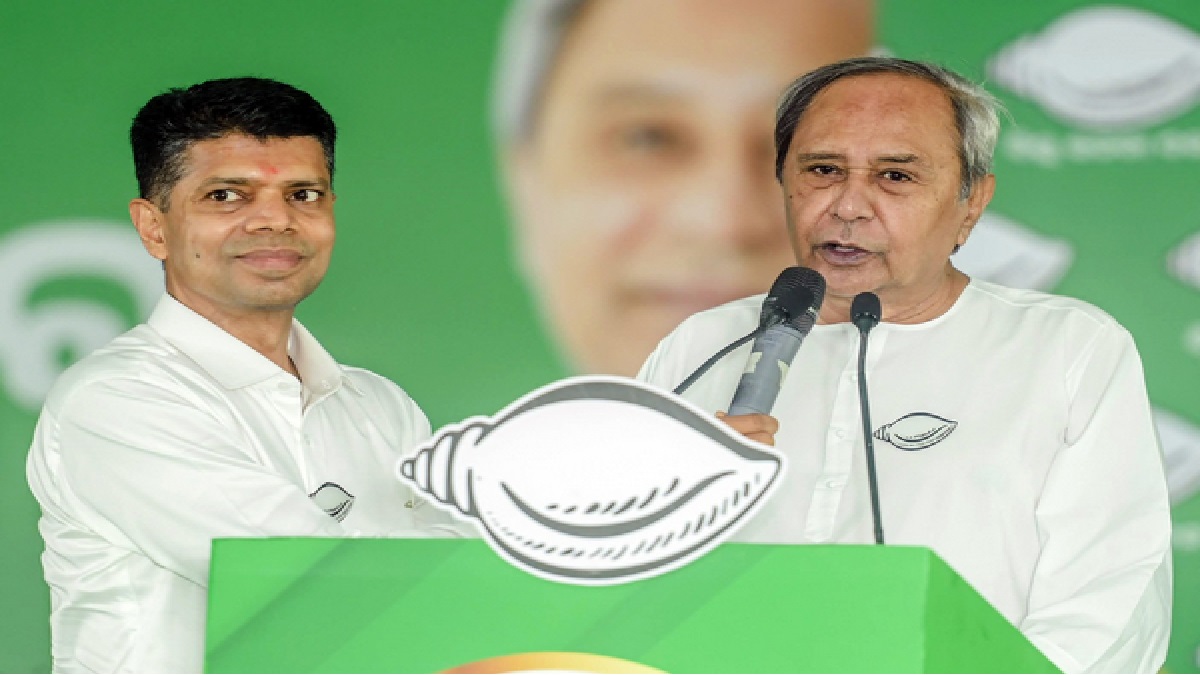Bhubaneswar: The recent restructuring within the Biju Janata Dal (BJD) following their electoral setback in June, particularly concerning the Waqf Bill controversy, reveals the enduring, albeit indirect, influence of V.K. Pandian.
While Shri Pandian publicly announced his “sanyas” from active politics, the composition of the newly formed Political Affairs Committee (PAC) and the allocation of organizational positions suggest a consolidation of power around figures perceived as loyal to his former power center.
Here’s a breakdown of the political analysis:
- Exclusion of Dissenting Voices:
- Senior leaders like Anang Udaya Singh Deo, Prasanna Acharya, Ranendra Pratap Swain, Badri Narayan Patro, Prafulla Samal, Pratap Deb, Arun Sahoo, MP Debashish Samantaray, and Prafulla Mallick, who have a long history with the BJD, have been notably excluded from the PAC.
- Similarly, Bupinder Singh, Prafulla Mallik, and Nrusingha Sahoo, who openly criticized the party’s stance on the Waqf Bill, have been sidelined, receiving no significant positions.
- Munna Khan, who opposed and voted against the Waqf bill, and also led slogans against Shri Pandian, has been demoted from convener of the minority cell, to co-ordinator of the south zone cell.
- Consolidation of Loyalists:
- The PAC is now dominated by individuals like Bikram Keshari Arukha, Pranab Prakash Das (Bobby Das), and others who are perceived as being close to the former power center, specifically V.K. Pandian.
- Pranab Prakash Das, despite being removed from the Organisational Secretary post, which has been removed entirely, has been made Vice President, and placed into the PAC. This continues to show he is a powerful figure within the BJD.
- Indirect Pandian Influence:
- Even after his formal departure, the selection of PAC members and the distribution of organizational roles reflect a pattern of prioritizing loyalty over seniority or dissenting opinions. This suggests that Pandian’s influence remains, albeit indirectly, through the placement of his loyalists in key positions.
- The removal of the Organisational Secretary position, a position Pranab Prakash Das held, and then the placement of Pranab Prakash Das into the PAC, shows a restructuring of the party, to keep his influence, but to remove his former position.
- “Lollipop” Positions:
- The appointment of senior leaders to head various cells, rather than granting them crucial organizational roles, is seen by political observers as a symbolic gesture, a “lollipop,” to appease them without giving them real power.
- Future Uncertainty:
- The political futures of the sidelined leaders remain uncertain, as their exclusion indicates a potential purge of dissenting voices within the BJD.
- The BJD is now focusing on reorganizing its youth, student, and women wings, which will further reveal the party’s direction and the extent of Pandian’s lingering influence.
- Party’s Stance:
- Pratap Jena’s statement about rejuvenating the party and continuing the fight for Odisha’s people is a standard political response, but the actual actions of the party leadership reveal a different narrative.
In essence, the BJD’s post-election restructuring suggests that while V.K. Pandian has formally stepped away, his influence persists through the placement of loyalists in key positions, effectively silencing dissenting voices and consolidating power within the party. That’s because Shri Pandian is ‘Most Trusted Aide’ of BJD Supremo Naveen Patnaik. Both are inseparable, pointed out a BJD Veteran, who has ‘Eyes and Ears’ in the insiders of Naveen Niwas.


